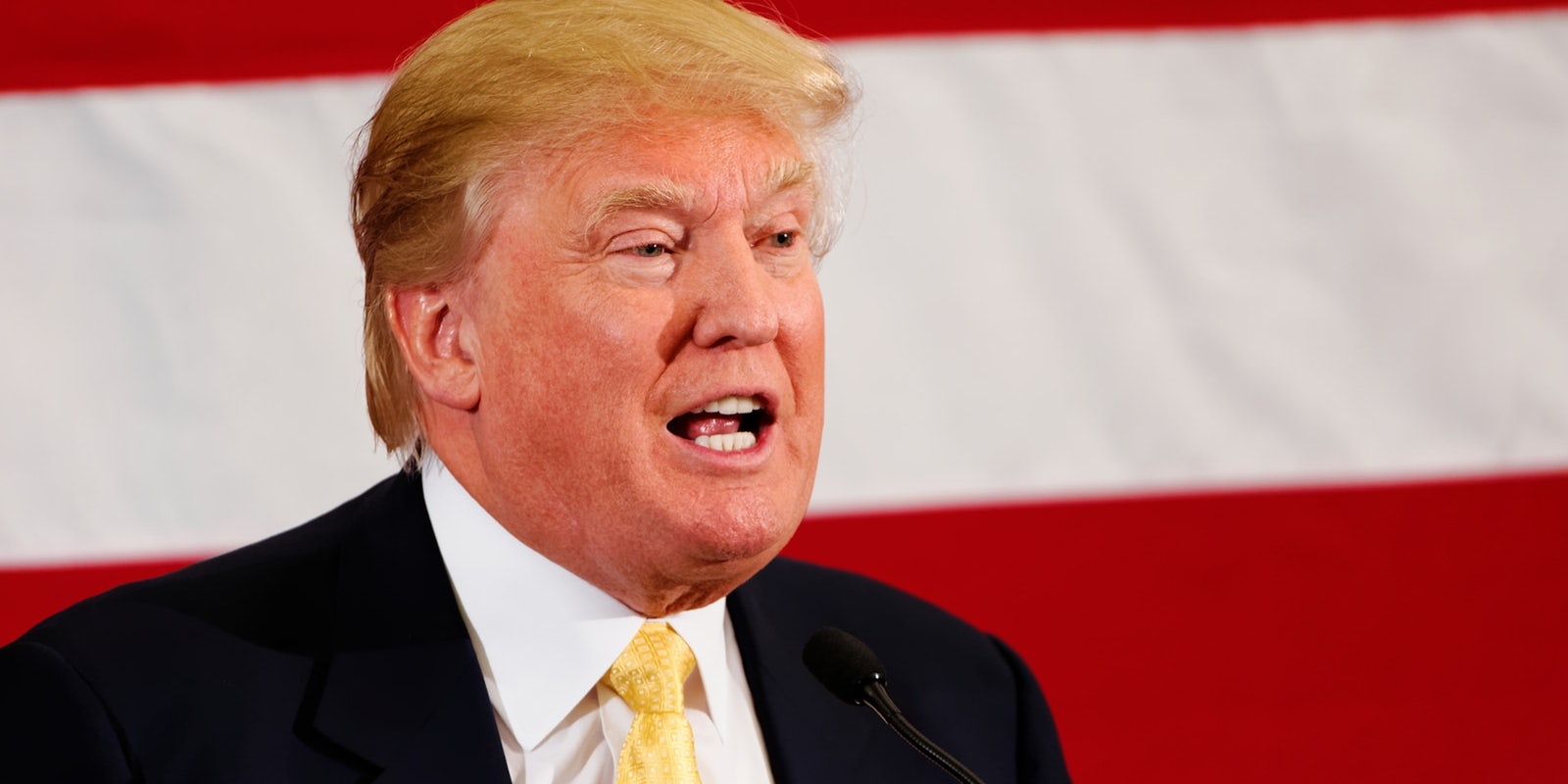At this stage in his political life, presumptive Republican presidential nominee Donald Trump doesn’t like liberals. And apparently he doesn’t particularly care for liberal-arts majors either, because the man in charge of Trump’s policy said this month that Trump wants to make it harder for liberal arts majors to secure student loans.
Sam Clovis, the Trump campaign’s national co-chair and policy director, told Inside Higher Ed that the idea was formulated based on the assumption that it’s more difficult for those with a liberal arts degree to get a job once they’ve graduated.
“If you are going to study 16th-century French art, more power to you. I support the arts,” Clovis said. “But you are not going to get a job.”
Clovis said those who choose to go into the liberal arts should understand the risk of joblessness, and he also floated the idea that colleges themselves should share in the risk of student loans. For a school like Harvard or Yale, though, Clovis said a student could major in anything and “once you get in the door, you’ll be OK.” But Clovis said not all colleges are the same, and for those schools that are less elite than an Ivy League university, a liberal arts degree doesn’t have the same worth.
“The liberal arts education is the absolute foundation to success in life,” said Clovis, an economics professor at Morningside College in Iowa. “[But] if you choose to major in the liberal arts, there are issues associated with that.”
The subject made some redditors rage with anger, and another Reddit thread insinuated that Trump’s position on this issue probably won’t make those women who are majoring in liberal arts fields like feminism all that thrilled.
But are Clovis’ claims true? Do liberal arts majors have a tougher time finding jobs?
According to this 2015 Georgetown University report, those who have recently graduated with a degree in the liberal arts and humanities have the sixth-highest unemployment rate of college graduates at 8.4 percent. Of course, that’s still lower than the 10.3 percent unemployment rate of those who major in architecture (and doesn’t Trump know something about building buildings?).
And as Start Class points out, “Recent graduates experienced an unemployment rate of 4.9 percent in September 2015. In contrast, young workers without a college degree averaged at 10 percent unemployment.” That means having a degree of any kind—even if it is a liberal arts degree—is more helpful to finding a job than having nothing at all.
Then again, people like Starbucks CEO Howard Schultz (a communications major), former Avon CEO Andrea Jung (English literature), and former Walt Disney CEO Michael Eisner (English literature and theater) would disagree with the assertion of Trump and Clovis. After all, as Time notes, all those former students majored in fields that would be consider liberal arts.
As did a former Republican candidate named Carly Fiorina—who, once upon a time, majored in medieval history and philosophy.
Trump’s position, though, didn’t impress Sheila Barr, the president of Washington College who formerly was the chair of the FDIC.
As she wrote for Fortune, “For a candidate already viewed with strong suspicion by market-oriented conservatives, this idea represents a troubling ‘nanny state’ attitude toward young people — as if the government knows better than they do which course of study they should pursue … One of the many strengths of the U.S. system of higher education is the rich diversity of choices it offers. It should be preserved, not undermined by the government arbitrarily dictating which kinds of study should and should not receive federal support.”
H/T Billfold


